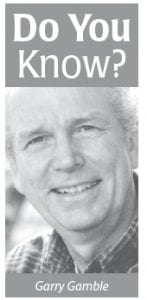By its very nature, the democratic process motivates citizens to form opinions on a number of issues. Almost any matter has the potential to become a public issue if a significant number of people wish to make it one.
Whether public opinion is regarded as a constructive or a destructive force in a democracy, there are few politicians who are prepared to suggest “in public” that government should ignore it … however, officials too often retreat to divergent posturing behind “closed” doors.
Political scientists tend to agree, while public opinion does not influence the details of most government policies, it does set limits within which policy makers must operate. Elected officials usually struggle to avoid decisions they believe will be widely unpopular.
Bend an ear to the word on the street—at a local watering hole, in the narrow aisle of a grocery store or while pumping petrol at a station—and you’ll find unguarded public opinion is rampant when leadership appears to be “taking us in the wrong direction.”
This is why public opinion seems to be much more effective in influencing policy making at the local level than at the state or national levels.
Public opinion scholars Lawrence R. Jacobs and Robert Y. Shapiro assert that most politicians tend to respond to public opinion in cynical ways. If they choose to give any credence to public opinion at all, a significant number use public opinion research to manipulate the public rather than to act on the public’s wishes.
Let it serve as a reminder that public opinion exerts an amassed powerful influence in politics through its “latent” aspects: in effect, a probable future reaction by the public to a current decision or action by public officials.
Politicians who ignore the possible consequences of latent public opinion risk setback or defeat in future elections (reference September 9th column: “A Tale of Two Counties”).
Consider Thomas Jefferson’s thoughts on the subject of public opinion, writing from Paris January 16, 1787 to fellow Virginia statesman Edward Carrington, a lieutenant colonel in the Continental Army who became Virginia’s delegate to the Continental Congress from 1786 to 1788. His most notable achievement, however, was serving as the foreman of the jury that acquitted Aaron Burr of treason.
Jefferson writes …
“I am persuaded myself that the good sense of the people will always be found to be the best army. They may be led astray for a moment, but will soon correct themselves. The people are the only censors of their governors.”
It was this letter to Carrington that contained what has become one— among many—of Jefferson’s iconic quotes:
“The basis of our governments being the opinion of the people, the very first object should be to keep that right; and were it left to me to decide whether we should have a government without newspapers, or newspapers without a government, I should not hesitate a moment to prefer the latter.”
Jefferson further exhorts…
“Cherish therefore the spirit of our people, and keep alive their attention. If once they become inattentive to the public affairs, you and I, and Congress, and Assemblies, judges and governors shall all become wolves. It seems to be the law of our general nature, in spite of individual exceptions; and experience declares that man is the only animal which devours his own kind, for I can apply no milder term to the governments of Europe, and to the general prey of the rich on the poor.”
This rigidly self-controlled Virginia gentleman clearly understood the principle of healthy democracies needing informed citizens.
Ideologues of the left and right, without regard for Jefferson’s “understood principle,” make no effort to conceal their yearning for a day when public officials would no longer be scrutinized.
Gene Policinsk, chief operating officer of the Newseum Institute, a founding editor of USA Today and executive producer of the public television program “Speaking Freely,” concluded, regarding Jefferson’s comments:
“When Thomas Jefferson made his observation in 1787, he made two assumptions:
“One, that there would be newspapers. And two, that those papers would contain both a critical mass of information that citizens of a democracy would use in governing themselves, and serve as a check and balance on the power and reach of government itself.
“More than two centuries later, both of Jefferson’s assumptions are being put to the test.”
Kudos to the News- Herald, Hal Kettunen and his staff for supporting such an ambitious project to measure public opinion. Conducting a credible survey is never an easy endeavor; however, most often an extremely important one.
Ideally, the people who prepare surveys and carry them out have no mission other than the objective and systematic measurement of public opinion; preferring to honestly represent the opinions of the public rather than having those opinions usurped and misrepresented or selectively propagated by public officials; i.e., “If we want your opinion, we’ll give it to you.”
“The people I distrust most
are those who want to
improve our lives but have
only one course of action.”
~Frank Herbert, former American science fiction writer best known for the novel Dune and its five sequels.
If you haven’t taken the time to complete your survey, I recommend you do so. It should only take a few minutes of your time. Even if you haven’t submitted it, as yet, based on the September 15th requested return date, you are encouraged to do so within the next few days. (Note: Not everyone who pays property tax in Cook County should expect to receive the mail survey. A Systematic sampling for a confidence level of 99 percent, allowing for a margin of error of 2 percent was used; which amounts to a sample size of approximately 2,000 resident/non-resident households that pay property tax in Cook County.)
Stay tuned . . .
Former Cook County Commissioner Garry Gamble is writing this ongoing column about the various ways government works.



Loading Comments